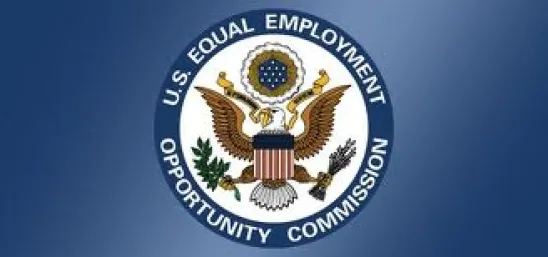Whether Title VII of the Civil Rights Act of 1964 prohibits sexual orientation or gender identity discrimination has increasingly been a hot topic over the past few years, particularly in relation to transgender employees’ rights in the workplace. At the center of the debate are employees who are anxious to know their rights and employers who need to know their responsibilities. However, as of late, many courts and agencies have tipped the scale in favor of prohibition of sexual orientation and gender identity discrimination.
The U.S. Equal Employment Opportunity Commission (EEOC) has affirmatively stated that sex discrimination includes discrimination based on sexual orientation and gender identity. In fact, the EEOC accepts and investigates charges from individuals who assert discrimination because of their transgender status (or gender identity) or sexual orientation. Further, the EEOC has committed to addressing protections for LGBTQ individuals in its Strategic Enforcement Plan.
 Notably, on March 1, 2016, the EEOC filed its first two lawsuits challenging sexual orientation discrimination. The first suit, filed in Pennsylvania federal court, was brought against Scott Medical Health Center on behalf of a gay male employee after a manager made anti-gay slurs and other offensive comments about the employee’s sexuality and sex life. The suit also alleges the employer’s president failed to take any action, despite knowledge of the harassment.
Notably, on March 1, 2016, the EEOC filed its first two lawsuits challenging sexual orientation discrimination. The first suit, filed in Pennsylvania federal court, was brought against Scott Medical Health Center on behalf of a gay male employee after a manager made anti-gay slurs and other offensive comments about the employee’s sexuality and sex life. The suit also alleges the employer’s president failed to take any action, despite knowledge of the harassment.
The second suit, filed in Maryland federal court, was brought against IFCO Systems on behalf of a lesbian employee who alleges harassment from a supervisor. The EEOC alleges the supervisor made statements such as, “I want to turn you back into a woman” and “Are you a girl or man?” and quoted biblical passages that indicated a man should be with a woman, and not a woman with a woman. The complaint also alleges that the woman was fired in retaliation for complaining to management and reporting the harassment on the employee hotline.
“With the filing of these two suits, EEOC is continuing to solidify its commitment to ensuring that individuals are not discriminated against in workplaces because of their sexual orientation,” said EEOC General Counsel David Lopez. “While some federal courts have begun to recognize this right under Title VII, it is critical that all courts do so.” A copy of the EEOC’s press release regarding these lawsuits is available here.
What should employers do?
-
Bottom line: All employees should be treated the same regardless of gender or sexual orientation. Update harassment policies and incorporate them into anti-harassment trainings.
-
Check state law and city ordinances: Several states, including Wisconsin, prohibit sexual orientation under state anti-discrimination laws, and others, such as Minnesota, Illinois and Iowa, prohibit both sexual orientation and gender identity discrimination. In addition, many cities, such as Madison, Wisconsin, have city ordinances which include prohibitions against sexual orientation and gender identity discrimination.
-
Restroom use: Allow employees to choose the restroom that corresponds to their gender identity. Trending case law, many city ordinances, the Occupational Safety and Health Administration and the EEOC agree that employees cannot be required to use a sex specific restroom. Employers who have any concerns may install unisex restrooms or multiple-occupant, gender neutral restrooms with lockable single stalls.
-
Name changes: Make the necessary changes to company documents after an employee legally makes a name change and use the employee’s preferred name and pronouns when referring to the employee in the workplace (regardless of legal name).
-
Benefits: Offer the same benefits to all employees, regardless of their gender or sexual orientation.
-
Dress code and grooming standards: Maintain these policies in a manner that does not discriminate on the basis of sex and apply them consistently across the workplace to avoid gender stereotypes.



 />i
/>i

